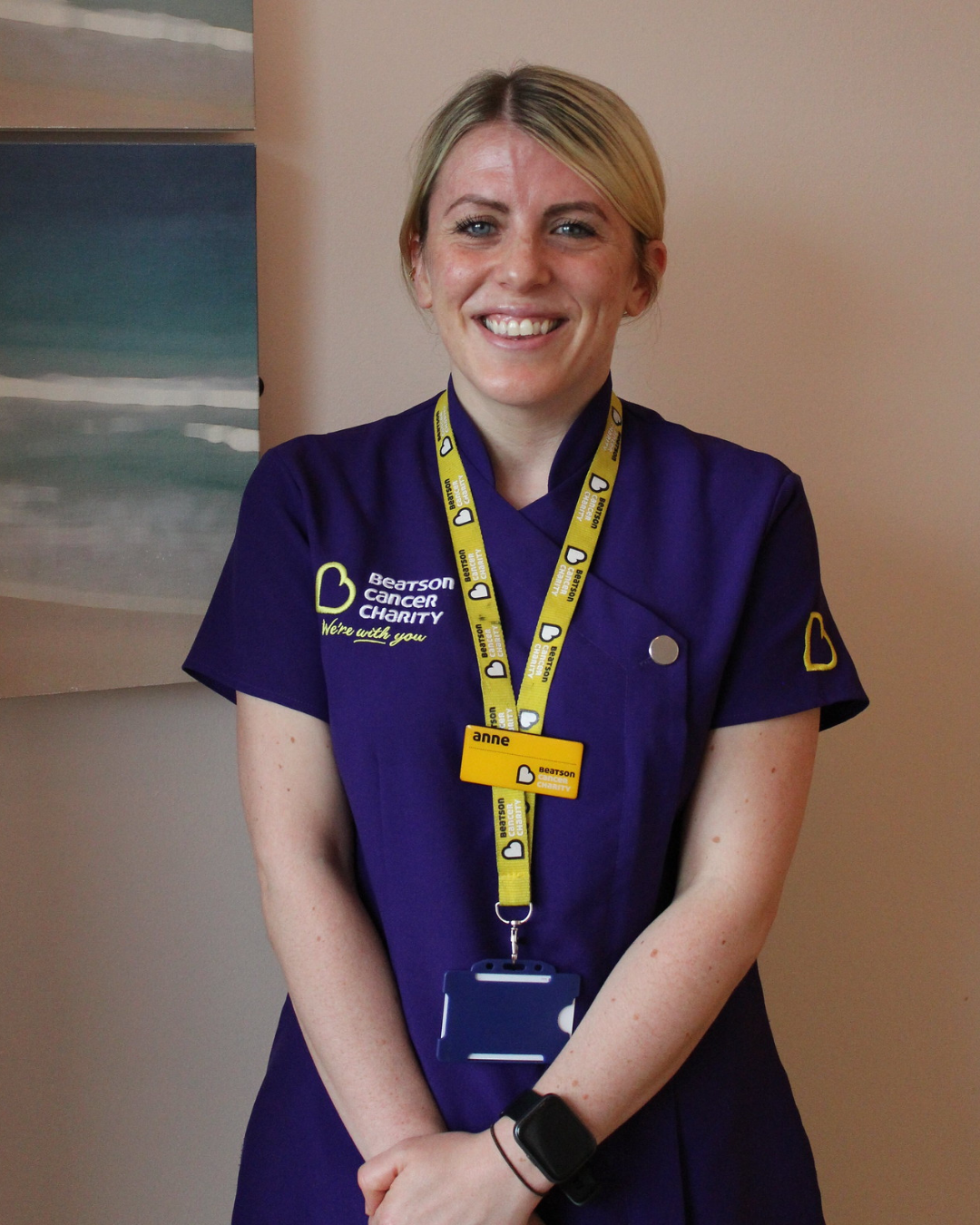My name is Anne, I graduated with a BSc (Hons) in Podiatry from Glasgow Caledonian University. In July 2024, I began working with the Beatson Cancer Charity, where I provide podiatry care and foot massages to both inpatients and outpatients at the hospital and its satellite locations.
I find great fulfilment in my role at the Beatson, collaborating with a dedicated and supportive team. Together, we strive to assist individuals facing the challenges of cancer, offering care and comfort during their most difficult times.

At Beatson Cancer Charity, we understand that even small changes in physical comfort can make a big difference during cancer treatment. Our podiatry service offers expert foot care and advice to help manage the side effects of treatment, such as nail changes, dry skin, and nerve pain. We spoke with Anne, one of our podiatrists, to answer some of the most common questions about how podiatry can support patients.
Why might someone need podiatry support during cancer treatment?
Various potential foot-related issues can arise from cancer treatments, including changes to nails and skin, as well as nerve damage (peripheral neuropathy). A podiatrist can offer essential foot care advice and assist in diagnosing, managing, and treating these conditions. This support can help enhance comfort and improve the quality of life for individuals undergoing treatment.
What are the most common foot-related symptoms to look for?
Nail changes are common foot-related symptoms associated with cancer treatments. Nails may become thickened (a condition known as onychauxis), discoloured, and brittle. Brittle nails can lead to painful issues such as ingrown nails (onychocryptosis) or paronychia, which is the inflammation of the tissue surrounding the nail plate. Additionally, onycholysis is a condition where the nail detaches from the nail bed, often without causing pain.
Skin changes can lead to dry skin (anhidrosis), which may cause flaking, scaling, or cracking (fissuring). Fissures often develop in areas of high tension, such as the heels, and can be painful.
Nerve damage affecting the arms, hands, legs, and feet, known as peripheral neuropathy, can occur as a side effect of chemotherapy. This condition may lead to sensations of pins and needles, pain, numbness, tingling, or weakness.
How can podiatry help with things like swelling, numbness and dry skin?
A podiatrist can diagnose underlying conditions that may lead to symptoms such as swelling, numbness, and dry skin.
A podiatrist can recommend various methods for alleviating pain associated with peripheral neuropathy. These may include the use of padding, orthotic devices, structured rehabilitation plans, and, in certain cases, medication aimed at reducing symptoms. This care may be provided through the National Health Service or by a private podiatric practice.
Patient education regarding dry skin is crucial for providing appropriate foot care advice. Individuals with dry skin should clean and inspect their feet daily and apply an emollient, such as a urea-based cream, to keep the skin moisturised. Urea functions as a humectant, attracting and binding water to help retain moisture in the skin. Additionally, scheduling regular appointments with a podiatrist can effectively manage their symptoms.
Do I need a referral to access podiatry services?
As an inpatient at the Beatson, you can access podiatry treatment by requesting services through a staff member or by visiting the Wellbeing Centre. Outpatients currently undergoing cancer treatment are entitled to six outpatient podiatry appointments at the Beatson Wellbeing Centre. To access this service, you can either call the Wellbeing Centre to book an appointment or request one through a staff member.
NHS podiatry services can be accessed through a self-referral request at your local NHS board.
Are there specific types of footwear you recommend during cancer treatment?
- A comfortable shoe with proper support, such as laces, with a closed toe, made from breathable materials that fit well.
- Avoid wearing high heels and ill-fitting shoes.
What do I do if I have difficulty walking or foot pain during treatment?
Inform your nurse, doctor, and cancer care team as soon as possible, and consider scheduling an appointment with a podiatrist for further evaluation.




 Donate
Donate